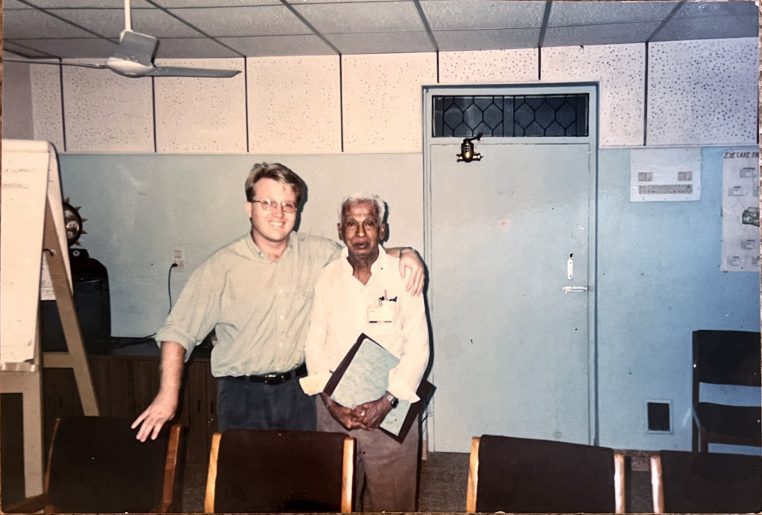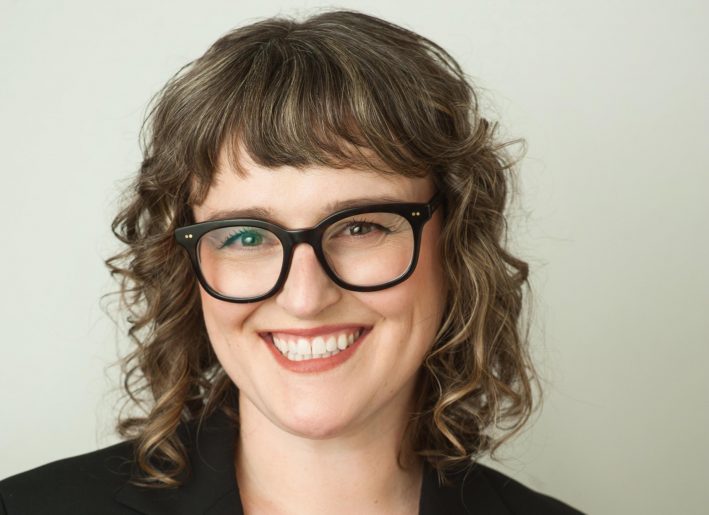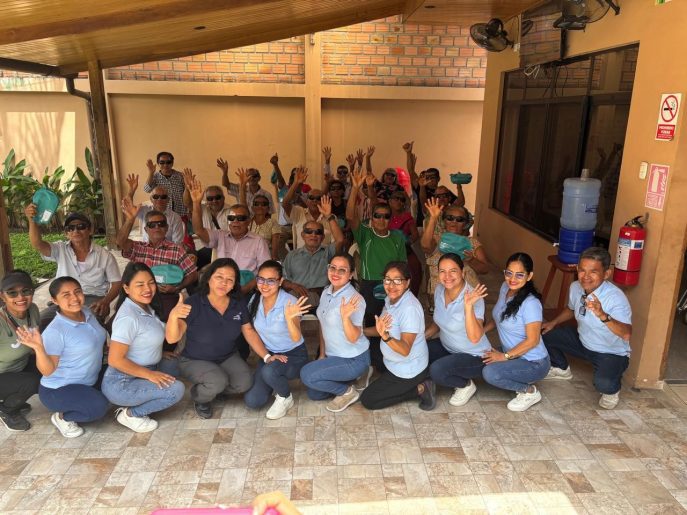In remote villages throughout Madagascar, many people are living with blindness and visual impairment. They are poor, scared, and unaware that their vision problems can be treated and that low-cost or free services are available.
As a result, Seva’s Malagasy partners have been using an innovative outreach strategy whereby a network of community workers, called Key Informants (KIs), are trained to find and refer people in rural areas, especially women and children, in need of eye care.
KIs are trained on basic eye conditions and travel throughout nearby villages to identify people with eye disease. They encourage and counsel families to attend screening camps and take advantage of the services provided.
At a screening camp in Mandrosohasina, we had the opportunity to talk to Key Informant Florette Ravonimalaca and ask her about her job. Here’s what she had to say.
Florette, a key Informant in Madagascar at the screening camp
Q: Florette, how did you become a Key Informant?
Florette: In 1998, I was nominated by my neighbours at a health project meeting. They picked me because they think I have a dynamic personality and an ability to convince people to come and get their eyes screened.
Q: What does a Key Informant do?
Florette: A Key Informant is a community health worker. We travel around the villages in our area and talk to people. We identify the people in a village who have potential vision problems and provide them with information on how they can be helped. We do this by going house to house as well as attending church and community meetings.
Q: Do you have other jobs?
Florette: Yes, I am a farmer. I farm rice, legumes and I raise pigs. Being a Key Informant is a volunteer position but I believe that the improvement I make to the welfare of my community is important and I would not change it for the world.
Patients at the screening
Q: Why did you come to the screening today?
Florette: I believe it is important for me to witness the screenings and surgeries. Many people are afraid. They believe that at these screenings their eyes will be removed but if I can accurately tell them what happens here and how it works, that can help convince them not to be afraid. I also come here to meet other witnesses of the eye care work. I ask people who have been to a screening to come with me to church services and city council meetings to spread the word about the available eye care services. In this way I can discredit the myths around eye screenings.
Q: Tell us about your family.
Florette: I have four children, three boys and one girl. Today I brought my daughter Minu so she can learn more about what I do.
Florette’s Daughter Minu
Q: Minu, what do you think about your mother’s job as a Key Informant?
Minu: She is very busy today talking to the people she brought here and to people she hopes will come speak with her. I am very proud. When I grow up, I hope to be a doctor so that I can have the same positive impact on our community.
Thanks to the dedication and hard work of Key Informants like Florette in Madagascar, more women are accessing eye care services and being given the power of sight.



